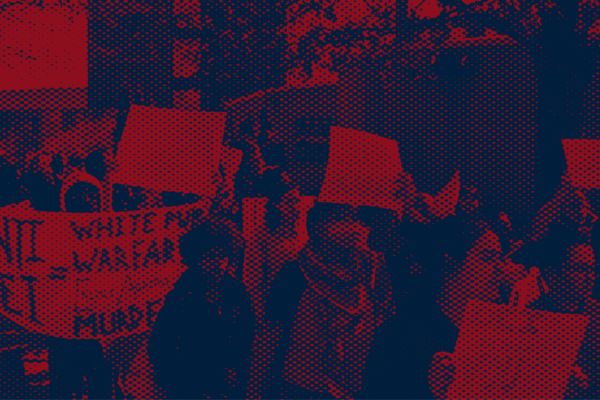Click on the menus below to know your rights while protesting.
The First Amendment protects your right to assemble and express your views through protest. However, police and other government officials are allowed to implement certain narrow restrictions.
Know your rights on the go:
Stay Informed
Sign up to be the first to hear about how to take action.
By completing this form, I agree to receive occasional emails per the terms of the ACLU’s privacy statement.
By completing this form, I agree to receive occasional emails per the terms of the ACLU’s privacy statement.

